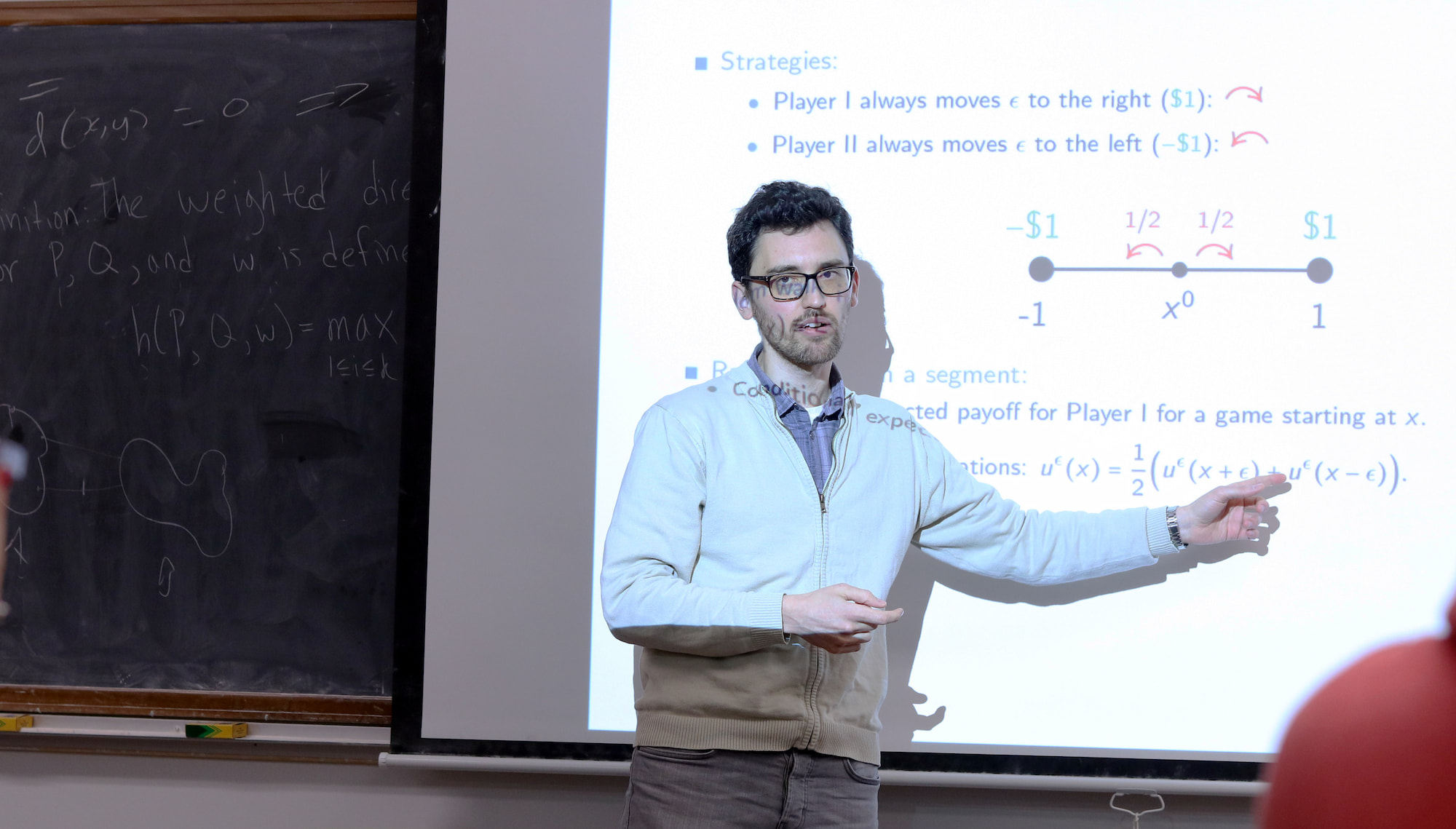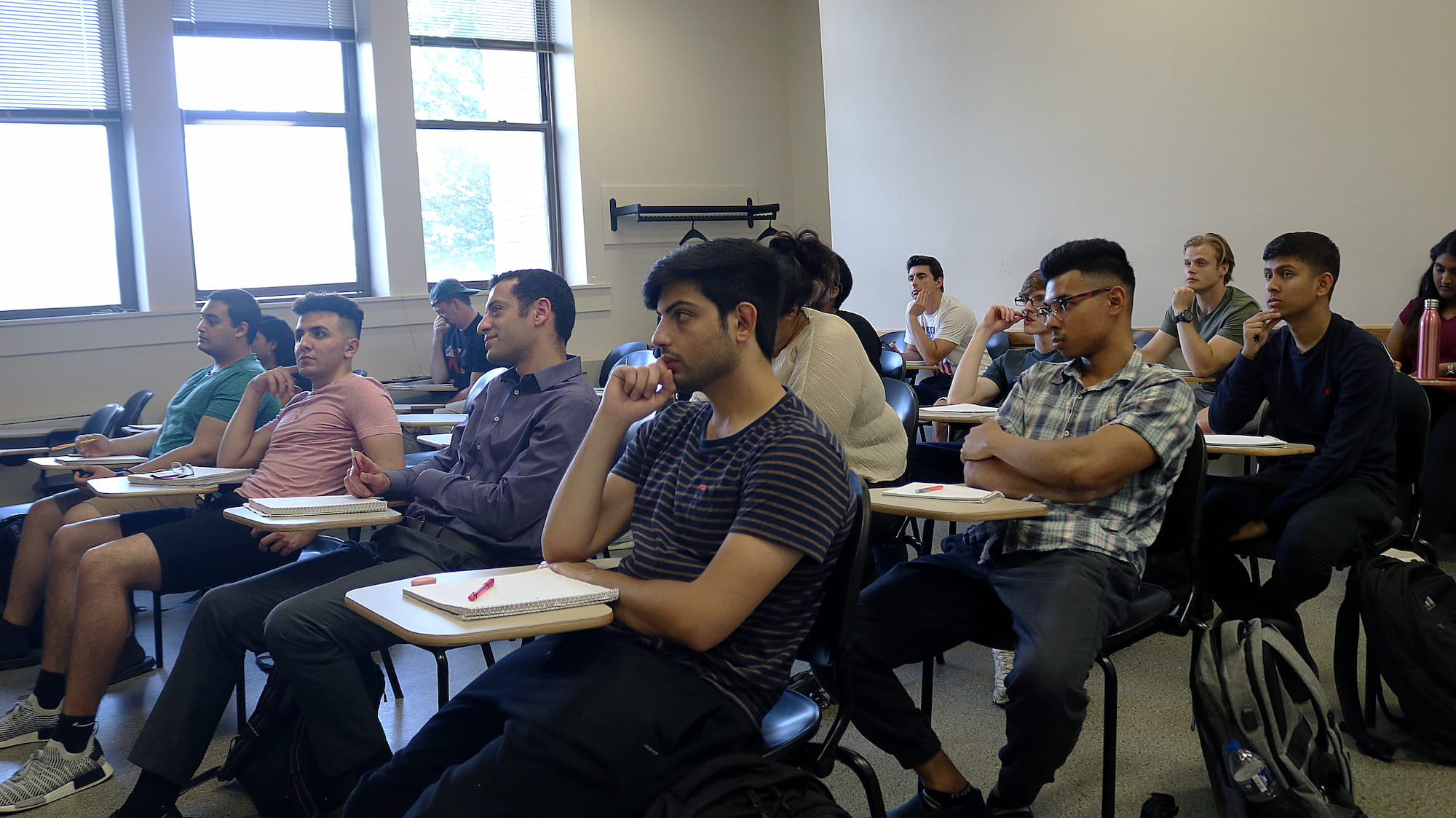Yearly assessment proves mathematics curriculum program a success
Winter 2021 exit survey of math majors and minors
Graduating undergraduate math majors and minors who completed our survey overwhelmingly agreed that our courses helped them to develop problem-solving skills, master new abstract concepts, use some mathematical software, communicate mathematical ideas and methods to others and extract statistical information from data sets.
They reported that they felt that their coursework was worthwhile and prepared them for their future careers. Collin, a winter 2021 graduate of the undergraduate program, felt that the Data Science course was most useful for future jobs, writing "I am interested in data science jobs so it taught me how the models that I use truly work and their advantages."
In addition, the students indicated that our front office staff was supportive and that they received helpful advice from math department advisors and instructors. The math majors said that the plan for their major was flexible and easy to understand. Areas with room for improvement include learning to read, understand and write mathematical proofs (which we are addressing with the new course MAT 2500) and improving the feeling of community and connections with other math majors (which suffered due to the pandemic).

Performance in core courses
Data from 2014 to 2021 indicates that in almost all of our core courses, 75% or more of the students completing the courses earned grades of A or B. The corresponding percentages in MAT 5420, 5070 and 5600, our introductory courses in algebra and analysis, where students first encounter higher levels of abstraction and start to write their own proofs, were somewhat lower. The new course MAT 2500 is designed to improve students' preparedness for proof-oriented courses.

Selected data
Undergraduate enrollment in mathematics courses held steady at about 6500 ± 300 from 2016-17 through 2020-21, despite university-wide declines in enrollment. The number of mathematics and mathematical economics degrees granted ranged between 22 and 29 from 2015 to 2020 but increased sharply to 39 in 2021.
The average time for completion of an undergraduate degree declined from 5.3 years to 4.2 years from 2015 to 2021. The number of math majors increased by 30% from 2014-15 to 2019-20, with a slight dip in 2020-21.
According to Kate, a Winter 2021 graduate of the undergraduate program, "I started out college not knowing exactly what to do. The first math classes I took was with the Emerging Scholars Program and they made me feel at home within the department. I switched to a math major because of this." The number of math minors increased more than fourfold from 2014-15 to 2019-20. (We don't have final figures for 2020-21, but the number doesn't seem to have declined since 2019-2020.)
"Math makes you think out of the box so it helps you not only in math but in anything else." - Waleed